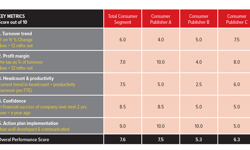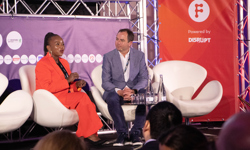
All media companies are subject to the pressures of the ‘digital disruption’, which can be defined as an explosion of choice. There is more great media than consumers have time to consume and many more places to put advertising than there is advertising.
That ‘choice bomb’ has also blurred the distinction between business and consumer media. Social media, search, and the always-on culture of the web challenges the once-discreet and specialised role of B2B media. And the web has pulled many corporates into the content, advertising and direct marketing activity which was once the domain only of media companies and agencies.
That is why the challenges for B2B media are so much more than the mere switch from print to digital.
Despite that erosion of traditional specialisation, B2B companies need – more than ever – to specialise. The evidence is in the global success of: exhibition companies like UBM, Reed and Emerald; data-rich businesses like Hearst; and B2B procurement operations like Alibaba. But the real strength of B2B media companies will always be in the customer relationships which can make them formidable integrated businesses (across events, information and data) in a single B2B sector, large or small. The large-company scale economies might propel Reed’s world-beating exhibitions group but strong relationships can give much smaller operators enduring leadership in individual markets.
But the strategic distractions are everywhere. The pervasiveness of Facebook, Google and LinkedIn risks creating an obsession with customer data. Sure, all companies need data about their customers. But the prime purpose of much of the B2C data is as a substitute for traditional advertising, to help companies target customers. It is part of the wave which makes clear that traditional media businesses – many of which once thrived on revenue from readers and advertisers – must increasingly choose one or the other. Data changes advertising. Most B2B media, however, must seek to build and develop exclusive information and ‘owned data’ which their readers / users will pay for. After all, the primary purpose of all B2B media is to help businesses make money.
B2B media companies need to keep reminding themselves that their equivalents of the consumer data of mass-market companies are their own relationships with customers they are in a position really to ‘know’ in ways Google can only dream about.
The essential choice between reader and advertiser funding must reinforce the need for all successful B2B companies to become true specialists, as much part of the sectors they serve as their own customers. Their best data will be the high-value information they can provide to these customers because, for all the ‘relationship’ Google might claim with all of us, B2B media relationships can be much more productive and enduring.












